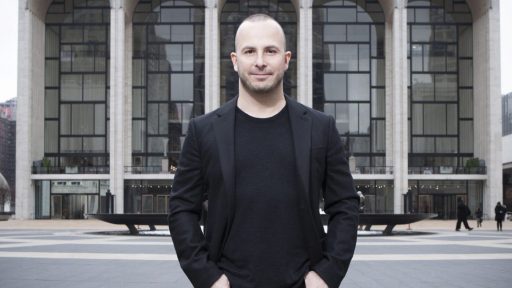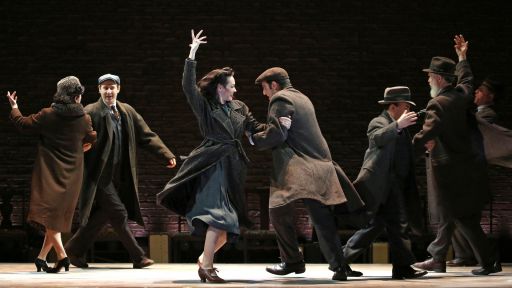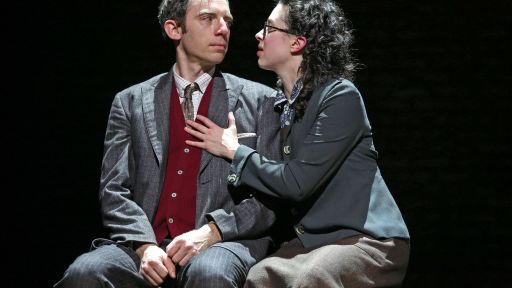Go behind the curtain of the Tony Award-winning play Indecent with Writer Paula Vogel, Director Rebecca Taichman, Producer Daryl Roth, and various cast members. Indecent comes to GREAT PERFORMANCES on Friday, November 17 at 9 p.m. on PBS (check local listings) as part of the fall Broadway’s Best lineup.
Features
Indecent is a story of a play called The God of Vengeance.
That was written in Poland in Yiddish in 1907.
Our play, Indecent, is about the history of The God of Vengeance.
This play will cause a sensation!
The play The God of Vengeance was an incredible and sort of tumultuous journey.
Like a comet streaked across Europe, just a great success, landed in the United States, and was closed down on obscenity charges when it appeared on Broadway.
And then on back to Europe.
It''s this sort of extraordinary lens through which to look at this vast swath of history.
Indecent is in one sense a ghost story, and these ghosts inhabit all of the people who play the various roles in the history of this play.
Our actors, who play many, many roles tonight I play a number of characters in Indecent.
I''m actually the only actor in the show who only plays one character I play six different roles.
They''re all fighting for something, but are all very different characters, so you get to box in a different style every time you come on the stage.
[We have a role, this young boy must have been thinking of you when he wrote it!
In the program I think we''re just listed as actor.
Rifkele!
The seed for Indecent happened twenty years ago when I stumbled upon the play God of Vengeance.
In The God of Vengeance, a Jewish brothel owner and his wife are raising their daughter and trying to marry her to a rabbi''s son, but she ends up falling in love with a female prostitute downstairs.
You are my bride.
It was a very controversial play, especially for the time that it was written in.
You will be torn limb from limb if the public sees this play.
I read this play when I was twenty-two years old.
Yellow copy in the library; it had been out of print for decades.
And I was stunned.
It''s all in there, the the roots of all evil, the, the money, the subjugation of women, the false piety oh, Sholem, the two girls in the rain scene.
My God, the, the poetry in it!
The beautiful acceptance that Sholem Asch the writer felt towards women in love is something that I think is a beacon.
And I thought, it''s not right that people don''t know about this play.
I saw this dusty little troupe performing in an attic in 1943, and I knew that''s why I had to write the entire play.
Thanks to Mrs. Gitla Bronowski for letting us use this spacious attic for our show.
So Paula Vogel and I had a very intimate process over a really long time, I mean it''s about eight years.
I can''t say enough about Rebecca Taichman and how she directed me and this play, I mean I think she did an incredibly brilliant job and she won a Tony award for it, and she it was well deserved.
She has truly changed me as a human being and a performer.
Her two core lessons, which I''ve come away with is, the trust in yourself, and the trust in the truth.
She works from a stance of, let''s try it And see where that goes.
We dig and dig and dig and then when she sees the diamond, she says that''s it.
There were really exciting moments and there were really frustrating moments, obviously extremely challenging things, but those are the things that make you grow as a person Sometimes people come in with all of the answers Rebecca came in with all the questions, and we spent several years finding answers.
[Instrumental music] We''ve spent about two years of our lives working on this play together, changing it and growing into the parts and getting to know each other.
When you work together that long, it just makes even that little, beautifully ornate orchestrated dance even more vibrant and wonderful.
[Instrumental music] It''s one of the many brilliant things that were done to make this show so special.
We have a story we want to tell you about a play, a play that changed my life.
Indecent is about making art and speaking out in dangerous times.
It''s really a celebration of culture and survival with issues that are as relevant today as they were so many years ago.
Issues of immigration, anti-Semitism, freedom to tell your story without censorship, and certainly the freedom to love who you choose.
I hope the most relatable theme is love.
And what happens when this love is challenged, how do you respond?
There are times in your life when loving something costs a lot, and for these artists it did.
There''s art that makes you love it, and there''s art that makes you very scared, and Indecent is about a play that actually did both, and I feel like that''s one of the, the stories of the play is that, you know, it was shut down by people who for the most part had never seen it.
When censorship is lifted, it increases empathy all throughout society, and I think that''s really important and one of the main reasons theater is important.
I mean, working on this show I felt a sense of community that I never knew existed on Broadway, and if we can expand that sense of community across the world, that''s the thing, that''s the thing.
It celebrates that impulse towards love and is, is like a call for it.
This story is a story that people didn''t know.
And then, somebody was like, oh!
But that''s the story of my family!
And so people came back, and then they brought their family.
People are so moved by it, many people take this line from the play which is, that it has changed my life forever.
End of play.
This is theater?
[Laughter] Oh, oh Mr. Asch, it is wonderful!
You May Also Like








